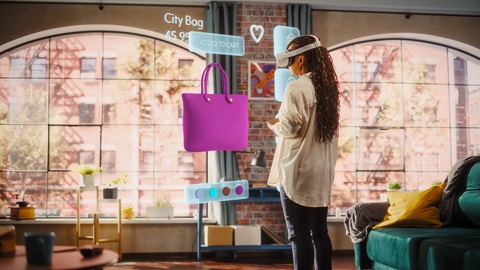Uncertainty shapes the way we shop and make important choices
Should you buy Apple’s new MacBook or a Microsoft Surface Pro tablet? For people who know little or care little about laptop specifications, they would most likely pick the product that speaks to their heart’s desire the most.
Should you buy Apple’s new MacBook or a Microsoft Surface Pro tablet? For people who know little or care little about laptop specifications, they would most likely pick the product that speaks to their heart’s desire the most.
Indeed, a sense of uncertainty about a purchase makes people more likely to rely on how they feel about a product than their rational evaluation of it, our
research shows.
Take for instance how music listeners choose to pay for music streaming services, despite the prevalence and ease of illegal file sharing. In its heydays, file-sharing websites like Limewire saw 50 million users illegally downloading music for free every month. Music piracy carries an uncertain risk, where bad actors may deliberately infect a user's computer with malicious software through tainted MP3 audio files. Now, options like Spotify, Apple Music, JOOX, KKBox, and others present a safer alternative, despite piracy’s convenience and the lack of a price tag. Premium music subscription services guarantee a certain level of song quality unlike pirated MP3 files that could have been recorded off a radio, and users would prefer putting up with advertisements between listening binges to avoid the uncertainty that pirated music brings.
My studies with Michel Tuan Pham, professor of business in marketing at Columbia Business School, show that people are more attracted to a product’s aesthetic appeal if they have been primed to feel uncertain.
The drive of uncertainty
Uncertainty is characterised by psychological discomfort, and a motivation to resolve it. People also tend to experience uncertainty as a threat to their sense of self. As such, they tend to depend more on information that closely mirror their personal values and judgments.
We also studied consumers’ purchasing behaviour regarding different products such as an apartment, a car and a laptop. In these studies participants were asked to choose between products that were either functionally superior or more aesthetically pleasing, but otherwise similar. For instance, car A may have better fuel economy but lack visual appeal, while car B may look better but consume more fuel. We found that uncertainty shifts people’s preferences towards products that are more visually appealing. These investigations are important because they explore how deep-rooted this reliance on emotional subjectivity is, when participants have been manipulated to feel uneasy and confused.
Are the effects of priming people to feel uncertain limited only to the aesthetic aspect of a product, or are they powerful enough to make people disregard the intrinsic value of products? What we have found is that people who are made to feel uncertain will rely more on their emotional judgment, even disregarding products that are functionally superior.
Uncertainty sells
Our findings show that a sense of uncertainty significantly affects how consumers make their purchasing decision, and that has important implications for marketeers and even the government. It is not enough to sell a product or policy based on its superior functionality because the emotional psyche comes into play. Indeed, increased uncertainty can push people to make decisions based on emotions rather than rational consideration, despite the importance of the matter.
With that in mind, marketeers would do well to appeal to the hearts of consumers besides promoting the superior aspects of their products. For marketeers who sell products in which the aesthetic value is higher than the intrinsic value, they might pursue a marketing advantage of making consumers feel uncertain about the choices available. One such product could be a phone plan that allows for unlimited data. Users would make the switch despite the firm having little or no information about its network quality.
Marketeers could prime consumers to feel uncertain by asking questions rather than making statements: “Would you like whiter teeth?” rather than “Everyone loves a beautiful smile.” Or they could spur anxiety about the future with questions such as “What’s going to happen when you retire?” Marketing strategies may include images of wars or natural disasters to promote the sense of uncertainty.
In a separate study, we examined how uncertainty about positive events affect consumers’ behaviour. We found that it has the same influence as uncertainty about negative situations. Indeed, marketeers could make use of so-called positive uncertainty, such as the sex of a foetus or the financial value of a prize.
What is perhaps alarming and interesting is that consumers may let their emotions dictate their decisions even when the decisions are important and difficult to reverse – such as buying an apartment.
This suggests that the effect of uncertainty may influence significant matters such as how parents choose schools for their children, or deciding on which telecommunications provider to subscribe to.
To be sure, the studies indicate that chaos and uncertainty could be useful for selling products that appeal to consumers’ emotions rather than their reason.
Contributed by Ali Faraji-Rad, Assistant Professor, Marketing and International Business, Nanyang Business School, NTU. The research project mentioned in this article is co-authored with Michel Tuan Pham, the Kravis Professor of Business in Marketing, Columbia Business School, Columbia University.
Source: The Nation, 5 September 2018







